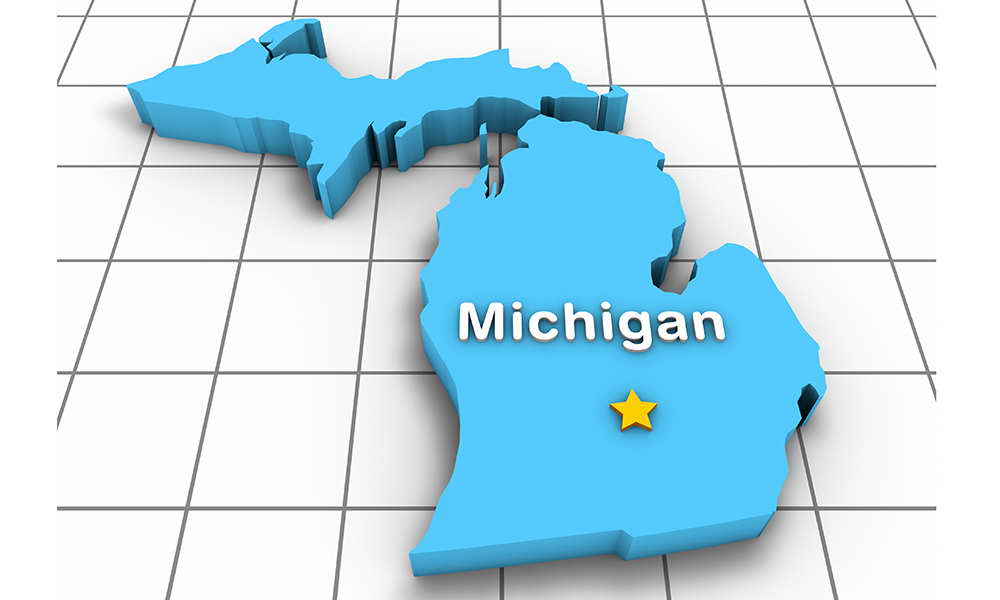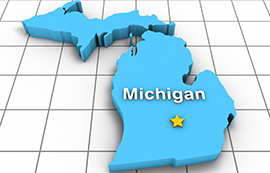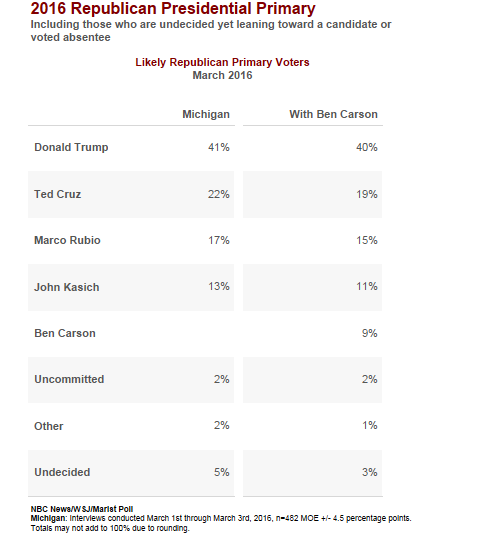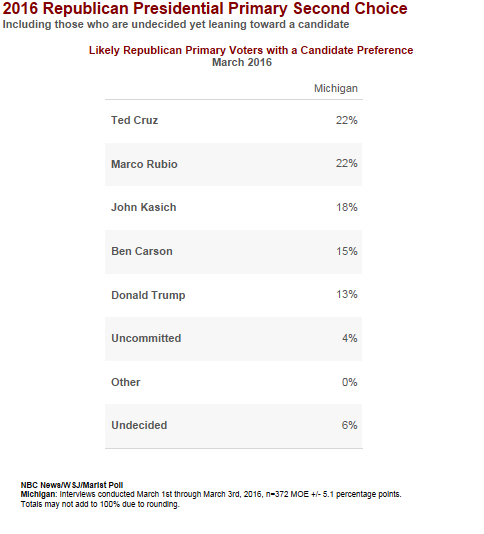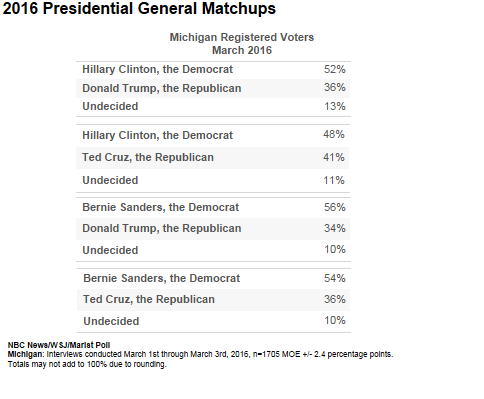March 6, 2016
3/6: In Michigan Trump and Clinton Have Wide Leads
NBC News/WSJ/Marist Poll
In a poll conducted prior to Thursday’s GOP debate, businessman Donald Trump receives the support of 41% of likely Republican primary voters in Michigan including those who are undecided yet leaning toward a candidate or who voted by absentee ballot. Texas Senator Ted Cruz, 22%, Florida Senator Marco Rubio, 17%, and Ohio Governor John Kasich, 13%, trail far behind. Trump outpaces his opponents across the board except among those who identify as very conservative where Cruz has the advantage. Much of the poll was conducted prior to Carson’s announcement that he did not see a path to a successful presidential bid. These results factor in the second choice candidate of Carson’s supporters.
With Carson in the contest, Trump’s lead is 21 points over Cruz and 25 points over Rubio.
“Trump is well-positioned to add the Wolverine State to his win column,” says Dr. Lee M. Miringoff, Director of The Marist College Institute for Public Opinion.
61% of likely Republican primary voters with a candidate preference or who voted by absentee ballot strongly support their choice of candidate. 12% might vote differently, and 5% are undecided. Trump’s supporters are the most likely to say they are firmly committed to him and are the least likely to report they might change their minds.
When it comes to the preferred second choice candidate of likely Republican primary voters with a candidate preference, Rubio and Cruz top the list with 22% each.
On the Democratic side, Clinton, 57%, outdistances Vermont Senator Bernie Sanders, 40%, among likely Democratic primary voters statewide including those who are undecided yet leaning toward a candidate or who voted by absentee ballot.
Clinton does especially well among African Americans, likely Democratic primary voters 45 years of age or older, Democrats, women, those who identify as moderate, or liberals. Sanders’ support is fueled by independents, those under 45 years old, or those who describe themselves as very liberal.
72% of likely Democratic primary voters with a candidate preference or who voted by absentee ballot strongly support their choice of candidate. Similar proportions of Clinton’s backers, 74%, and Sanders’ supporters, 71%, report they are firmly committed to their choice of candidate.
“Michigan is following a familiar storyline in the Clinton-Sanders matchup,” says Dr. Lee M. Miringoff, Director of The Marist College Institute for Public Opinion. “The greater the diversity of the Democratic electorate, the greater the Clinton lead.”
Looking at November’s general election, Clinton leads both Trump and Cruz, but Sanders does better against the GOP competition.
“The GOP’s worries about the Trump candidacy seem well-founded in the contest for Michigan’s 16 electoral votes,” says Dr. Lee M. Miringoff, Director of The Marist College Institute for Public Opinion. “Trump trails both Clinton and Sanders by substantially wider margins than Romney lost the state to Obama in 2012.”
Looking at his job performance, President Barack Obama’s approval rating is 50% among Michigan residents. 87% of likely Democratic primary voters in Michigan have this view.
Complete March 6, 2016 NBC News/WSJ/Marist Poll Release of Michigan
Complete March 6, 2016 NBC News/WSJ/Marist Poll Tables of Michigan (Adults & Registered Voters)

